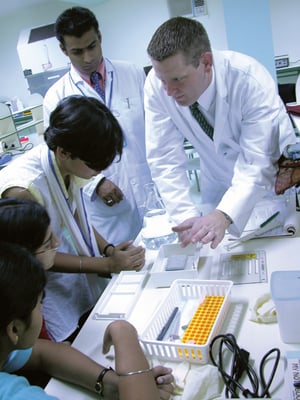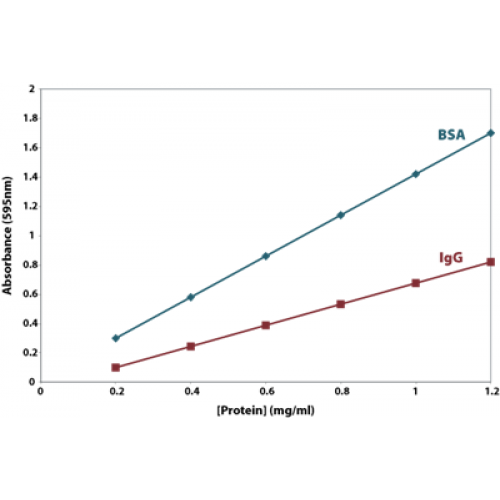 Biotechnology is one of the fastest growing industries and offers healthy starting salaries. Now is the time to educate students in biotechnology and the skills needed to pursue a career in this fast-growing field.
Biotechnology is one of the fastest growing industries and offers healthy starting salaries. Now is the time to educate students in biotechnology and the skills needed to pursue a career in this fast-growing field.
Interesting is a great reason to teach biotech. If students are interested in a particular subject, then they will be highly engaged. Who isn’t interested in cloning, forensics, and saving the world from disease and famine?
Organization, self-directedness, responsibility and workplace etiquette are great skills that are indirectly taught in hands-on biotechnology labs. These skills are valuable in the laboratory and in life, and very desirable to future employers.
Technique-based is a key aspect of teaching biotech. This makes biotech interesting and appropriate for students of all academic levels. Biotech classes allow students to meet and work with each other regardless of academic and socioeconomic levels.
Equips students for the workplace in many aptitudes, both scholastically and in personal development. Biotechnology can lead to many different career paths, whether directly or indirectly related to science, engineering, or business.
Classes are fun and engaging. The use of hands-on labs reinforces key principles and makes them easier to grasp. Biotech is an integrated science, so students will be engaged in learning biology, chemistry, math, and physics.
Higher level science courses like (AP Biology) and chemistry (AP Chemistry) have a higher success rate when students learn biotechnology courses earlier as they are well prepared for these AP courses. In biotech labs, students perform real and original research that can be applied to AP courses and science fair projects.
How to Implement Biotechnology Classes & Labs
There is a curriculum and curricular support to facilitate the implementation of biotechnology training programs at virtually any career, technical, or community college. Ellyn Daugherty, EMC/Paradigm Publishing, and G-Biosciences have joined forces to help colleges create biotech programs that meet the needs of a school’s local student and industry populations.
Author Ellyn Daugherty’s website has key resources about starting a program (www.bioteched.com) and her complete biotechnology course and lab manual is available through EMC/Paradigm, www.emcp.com/applied-learning/applied-science/biotechnology/. G-Biosciences offers the key reagents for Ellyn’s labs and also standalone biotechnology teaching kits to allow colleges to start adding hands-on biotechnology elements to their existing life science courses. Please reach out to G-Biosciences if you need assistance getting started.
Adapted with permission from Ellyn Daugherty






